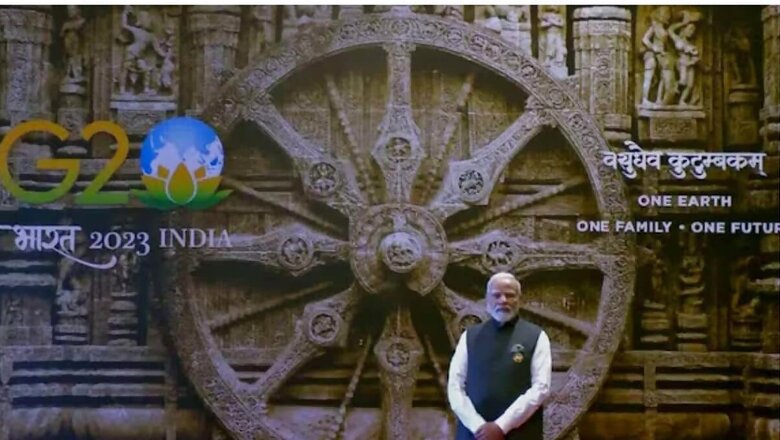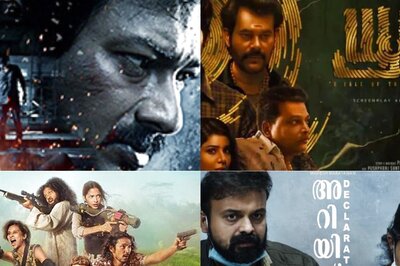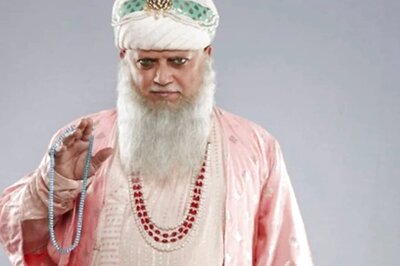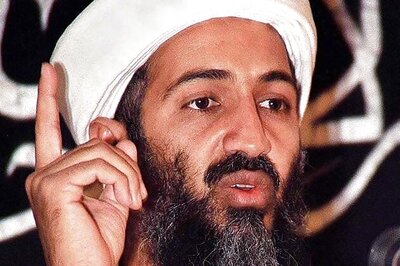
views
Sometimes, what we have intended to say in writing gets conveyed by an apparently simple image or an event but revealing a profound meaning or structure upon closer examination. On April 11, 2024, Japanese Prime Minister Fumio Kishida addressed the joint session of the US Congress on the threat of nuclear weapons from Iran, China and Russia that generated a lot of reaction to the tone and tenor of the speech.
He said, “As we meet here today, I detect an undercurrent of self-doubt among some Americans about what your role in the world should be.” He added, “The international order that the US worked for generations to build is facing new challenges, challenges from those with values and principles very different from ours.” And in an embarrassingly flattering tone, Kishida said he understood “the exhaustion of being the country that has upheld the international order almost single-handedly” and concluded: “The leadership of the United States is indispensable.”
The irony of the speech and the setting was not hidden to anybody; Japan being the only country in history to be atom bombed, the US being the sole country in history to have used nuclear bombs and the victim praising the perpetrator for being alone in the world to uphold the international order against the nuclear threat. Both the US and Japan are developed countries and economic powerhouses but the relationship they share is very peculiar, or rather asymmetric, ever since the Second World War.
So, when do we realise or acknowledge that an individual, a group of people or a nation has finally arrived and whose voice could be counted on the world stage? What are the parameters to judge or to take note that signifies the coming of age, the arrival on the scene or reclaiming the rightful place lost once upon a time? Of course, the general parameters are upward economic mobility in the case of individuals and for larger entities like nations, it is economic standing along with military might and a skilled demography to sustain that economic-military machine.
For some, it is cultural domain or the likeability and imitation of one’s cultural practices and products by other people and nations that highlights its importance and prominence in the world. This type of cultural influence goes by the name of soft power, where one set of people impose their practices and preferences over other people through non-confrontational and indirect methods. The economic, military, and cultural aspects form a triad in defining the trajectory of nations but it is not necessary that one follows the other two inevitably in the course of time. Sometimes the military might or economic prosperity are just reflective dominance when one chooses to be the vassal state of a superpower and therefore are very fragile and temporary in nature.
Out of all the factors that signify the growing importance of a country in world affairs, the domain of culture can be considered to be significant, not only because it forms the part of soft power but rather acts as a foundation on which the edifice of greatness can be erected. It is culture that can act as a guiding light even in the bad of times when there are economic-political-military storms hitting the shores of the nations, because it makes you remember who you are, wherein lies your strengths and weaknesses and how to see the world and make sense of it. This is all the more important for countries that have come out after a long period of colonisation and are still in the process of getting out of the shadow completely through a movement that has been called as decolonisation.
Any long spell of external domination alters the cultural landscape of the people, through education, co-option of the elites of the region and interpreting the practices of the people which were self-evident in the eyes of the practitioners. Sometimes, that restructuring of values and practices happens without direct domination but through influences and acts of humbling. Japan being the prime example where the bombing humbled them in such a way that even after having economic dominance in the world and backed by the American military, they can’t exert the same cultural dominance because the specific Japanese way of understanding things was eroded significantly with the process of modernisation initiated a century ago. In the name of culture, they either have the packaged form of Zen Buddhism as a showpiece and the much appreciated work-culture where you work your way to extinction.
The challenge before India as it tries to enter the world-stage as a distinct voice in the 21st century is to learn from the mistakes of these Asian economic giants like Korea and Japan, that economic and military if they are not backed by the solid cultural foundation and understanding of the world remains at best fragile. In order to outdo the dominance of the western block, we should not make the fatal mistake of identifying the fault within our cultural framework, our practices and behaviours. This can initiate a chain reaction where self-purging and self-loathing become our primary concern, just like some of our anglicised ancestors in the past were accustomed to and advocated. Culture should be seen as an arsenal, a pool from where you draw your energies, strategies and weapons to wield your dominance over your opponent and to read into their motivations and chinks in their armoury.
With a view to announce our sovereignty and to keep up the tasks of nation-building, it is imperative for the powers to focus on these crucial aspects of cultural identity, and understanding and translating the world cultures from one’s own perspective to get a better foothold in the highly competitive and complex field of geopolitics. The need of the hour is to think something along the lines of the Indian Institute of World Cultures, where the focus would be to do a comparative study of world cultures from a Vasudhaiva Kutumbakam (Indian) perspective.
When Europe was emerging as a dominant pole in the world that coincided with what is known as the Renaissance and Enlightenment, the first thing it did was to rediscover its Greco-Roman past and heritage that was lost in history. With that self-knowledge, they set out to know the world on their own terms, even if that understanding was distorted or biased in their favour. The Indian experience of British colonialism is a testament to the fact that British administrators and scholars spent a lot of energy in understanding Indian society through its texts written in different languages but mostly in Sanskrit. The whole field of Indology that emerged was basically a European understanding of Indian society or more specifically, a mapping of their concerns and desires on Indian society.
Similarly, the arrival of US dominance on the world stage was accompanied by their concern for area studies, and opening of dedicated centres in universities; American Institute of Indian studies, founded in the 1960s is one such example that promotes research on India in American universities. With India trying to carve a place for itself, it would be prudent to think about the world in its own way, i.e. Vasudhaiva Kutumbakam, and to have its resources deployed in that direction in the form of Indian Institute of American Studies or European Studies or Chinese Studies.
The mark of a confident individual or nation lies in the ability to see the world on their own terms and with their cultural frame of reference. In the face of confrontation or conflict, it may or may not decide the outcome that depends on other variable factors, but it can definitely prevent or act as a buffer against the complete humbling in front of the might of the opponent. It is our guess that the humbling of the Japanese nation after the bomb experience would not have happened if it had not blindly pursued the task of modernisation or westernisation of its people and its worldview. The technological supremacy could not give them courage to move out of the long shadow of the terror inflicted on them and serves as an important lesson for emerging powers like China and India.
Dr Alok Kumar Kanungo has spent decades in various museums across Europe and the US, besides India, for his research and analysis interests; Dr Prashant Kumar Singh is a post-doctoral research fellow with an interest in anthropological theory. Both of them have rich, long-term experience working with indigenous communities and cultural representations of India and, at present, working in the interdisciplinary HSS department of IIT Gandhinagar. Views expressed in the above piece are personal and solely those of the authors. They do not necessarily reflect News18’s views.




















Comments
0 comment